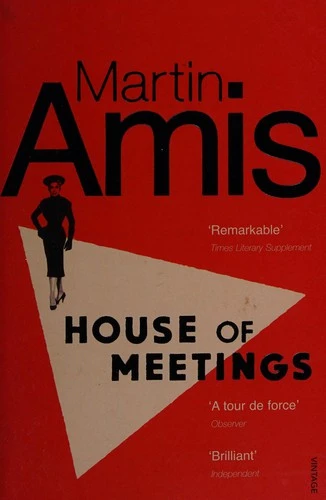There were conjugal visits in the slave camps of the USSR. Valiant women would travel continental distances, over weeks and months, in the hope of spending a night, with their particular enemy of the people, in the House of Meetings. The consequences of these liaisons were almost invariably tragic. House of Meetings is about one such liaison. It is a triangular romance: two brothers fall in love with the same girl, a nineteen-year-old Jewess, in Moscow, which is poised for pogrom in the gap between the war and the death of Stalin. Both brothers are arrested, and their rivalry slowly complicates itself over a decade in the slave camp above the Arctic Circle. As one brother, finally, writes to the other, 'You know what happened to us? It wasn't just a compendium of very bad experiences. That was general and standard-issue. That was off the rack. What I'm referring to is the destiny that is made to measure. Something was designed inside us, blending with what was already there. For each of us, in different ways and settings, the worst of all possible outcomes.' A short novel of great depth and richness, House of Meetings finds Martin Amis at the height of his powers, in new and remarkably fertile fictional territory.
Martin Amis
Martin Amis is a British novelist and essayist known for his darkly comic and satirical writing style. He has written over 20 books, including "Money" (1984), "London Fields" (1989), and "The Information" (1995). Amis is known for his sharp wit, distinctive voice, and exploration of contemporary issues in his work. His writing often delves into themes of morality, society, and the human condition. Amis has been a prominent figure in the literary world and has made significant contributions to the genre of postmodern fiction. His most famous work is arguably "Money," which is considered a modern classic of British literature. With his unique storytelling and provocative themes, Martin Amis continues to be a influential figure in contemporary literature.



